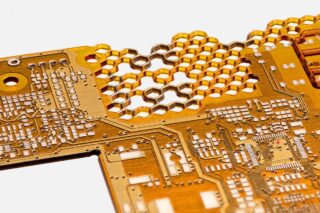Today the European energy market is experiencing extraordinary pressure. Gas prices in Europe are now about eight times the average of the past 10 years – and about eight times more expensive than prices in the United States. How can businesses make energy savings? Solutions exist.
This unprecedented energy crisis is the result of a number of factors, including changes in customer and investor sentiment, the drive towards carbon net zero, the COVID-19 pandemic, and particularly the ongoing war in Ukraine, which has seen Russian supplies of natural gas slashed to a fraction of their normal level.
In many European industrial sectors, unprecedented energy price increases are massively impacting production costs. Unfortunately, there is no respite in sight, with futures markets pricing European gas at twice or three times their 2021 levels through 2025 and beyond.
According to Laurent Kraif, Director General of Perfesco, a subsidiary of French energy company EDF created in 2013 to finance energy efficiency projects,
“This situation is new for everybody because nobody could have conceived of it a few years ago. All companies are now rushing to take action, to remain viable now and competitive going forwards.”
Efficiency in the Spotlight
Energy efficiency is the so-called “first fuel” – the one you do not have to use, yet it gives you the services you need. It is inexpensive and abundant. It is also a critical component of enhanced systems resilience and industrial performance.
Despite this, the European industry has long failed to implement easy measures to reduce its energy use, says Alric Marc, president and founder of Eficia, a French start-up specializing in the smart energy management of tertiary buildings:
“Pretty much every European company has been wasting energy up till now. Before now energy prices were very low, especially in France, so it didn’t really matter. Now obviously it matters a lot. Companies owning or managing tertiary buildings, for example, can save 20 to 30% on their bill within six months through smart energy management alone. With the market as it is, these companies need to have a plan to save 50% over the next two to three years. This is eminently achievable.”
RELATED ARTICLE
An Innovative Business Model
Companies that are looking to reduce their energy bills may be reluctant or unable to invest the money required to upgrade infrastructure and/or production equipment.
According to Laurent Kraif,
“Investing in energy-efficient solutions is always about long paybacks. Faced with a choice, companies will always invest in projects with short paybacks. What we do at Perfesco, with our innovative business model, is to take that choice away and let our customers invest in both.”
Perfesco encourages investment in energy-efficient solutions by financing 100% of the upfront costs involved in their deployment, which typically takes around a year, including initial assessments and metering. Perfesco’s customers, which are principally large industrials, benefit from the long-term energy savings generated, while Perfesco also repays itself through those savings. Solutions involve a range of applications, such as lighting, heating, motors, power networks, and compressed air.
“In terms of energy costs from lighting alone, we can typically reduce our customers’ bills by 70%. We’re talking about a huge impact. It’s not just about replacing bulbs, but analyzing the lighting setup of a particular plant and then reducing the number of lighting points, installing controls, and introducing daylight harvesting.”
Smart Energy Management
Eficia also specializes in enhancing the energy efficiency of buildings and facilities (such as shops and offices), which it does by managing their installations, such as lighting and HVAC systems. The company initially conducts an energy audit, identifies the potential energy-saving capacity of a site, installs management systems (such as sensors and controllers), and then remotely controls settings through a 24-hour service center, employing technology such as machine learning. In addition to France, the company is also rolling out its service in Spain and Italy.
For Alric Marc,
“Everything remains the same in the building, except Eficia smoothly controls the energy-intensive equipment. The payback can be as quick as one month, especially with energy prices as they are. The customer just has to relinquish control. It may seem invasive at first, but all they have to do is let us control the lighting and the heating.”
Eficia’s smart energy management can help customers to reduce their energy bills by 15 to 20%. The company also offers advice on how companies can make further savings by investing in more efficient equipment.











